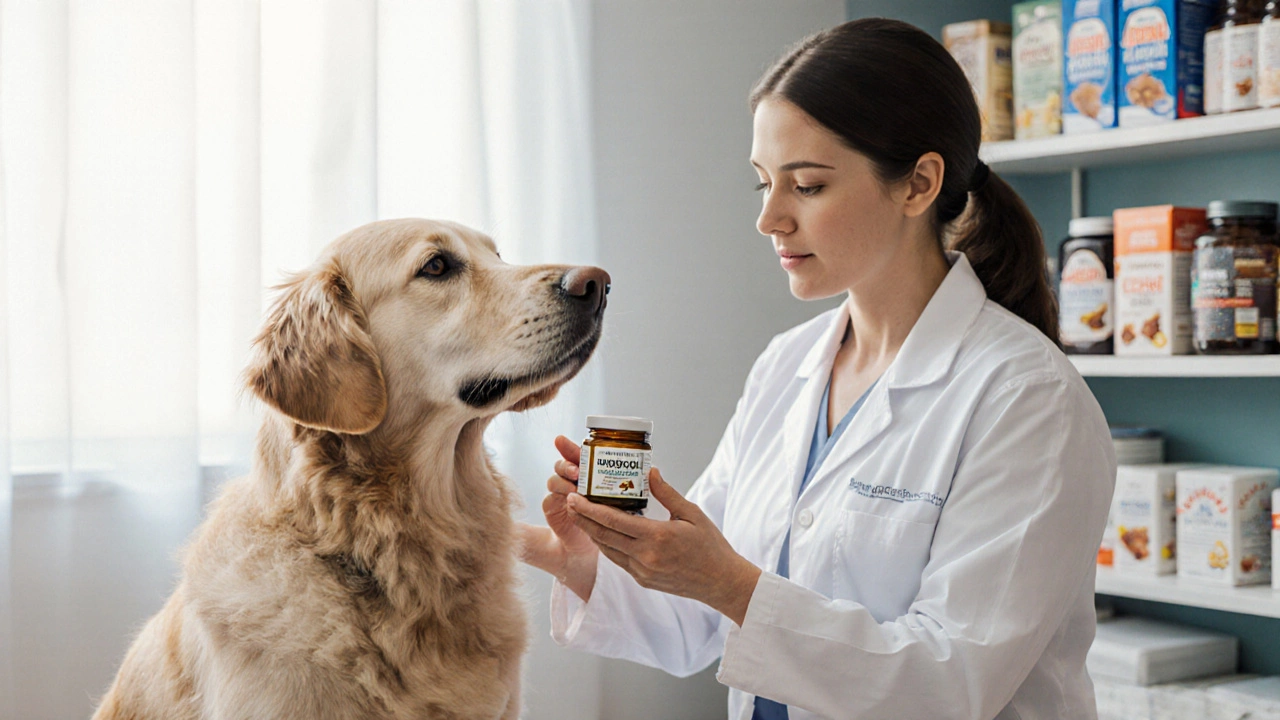Dog Skin Health: Causes, Signs, and Simple Solutions
When your dog is constantly scratching, licking, or rubbing against the furniture, it’s not just annoying—it’s a sign something’s off with their dog skin health, the condition of a dog’s outer layer that protects against irritants, bacteria, and environmental stressors. Also known as canine dermatology, it’s one of the most common reasons pet owners visit the vet. Healthy skin isn’t just about looks; it’s your dog’s first line of defense. If it’s dry, red, or flaky, something deeper is wrong.
Most of the time, poor dog skin health, the condition of a dog’s outer layer that protects against irritants, bacteria, and environmental stressors. Also known as canine dermatology, it’s one of the most common reasons pet owners visit the vet. isn’t caused by one thing. It’s usually a mix of dog allergies, an immune response to food, environmental triggers like pollen, or flea bites that leads to inflammation and itching, poor diet, parasites like fleas or mites, or even stress. You might notice your dog chewing their paws, losing patches of fur, or developing hot spots—those red, oozing areas that get worse the more they scratch. These aren’t just annoyances; they’re signs your dog’s skin barrier is broken.
What you feed them matters more than you think. Cheap dog food with fillers like corn or soy can trigger reactions that show up as skin issues. Even if you’re using a premium brand, some dogs are sensitive to chicken, beef, or dairy. And don’t forget the environment—wet weather, pollen in spring, or even new laundry detergent can cause flare-ups. Fleas are another big one. Just one bite can send an allergic dog into a scratching frenzy for weeks.
You don’t need to spend hundreds on special shampoos or supplements right away. Start simple: check for fleas daily, switch to a limited-ingredient food if symptoms started after a diet change, and bathe with a gentle, oatmeal-based cleanser no more than once every two weeks. Over-bathing strips natural oils and makes things worse. If the itching doesn’t calm down in a couple of weeks, or if you see open sores or a bad smell, it’s time to see a vet. They can test for infections, mites, or underlying conditions like hypothyroidism.
The posts below cover real cases and practical fixes. You’ll find advice on how to tell if your dog’s scratching is an allergy or just boredom, what foods actually help improve coat condition, and how to spot early signs of infection before it turns into a full-blown problem. Some posts even talk about how grooming stress or travel can trigger skin reactions—things most people never think about. Whether your dog has mild flaking or constant redness, you’ll find something here that helps.
Posted By Bryndle Redding On 16 Nov 2025 Comments (0)
Do Vets Recommend Coconut Oil for Dogs? Real Advice from Veterinarians
Vets rarely recommend coconut oil for dogs because there's little scientific proof it helps - and real risks like pancreatitis and weight gain. Learn what actually works for skin, coat, and digestion instead.
READ MORE